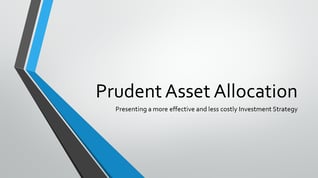During these historical and unpredictable market conditions, the issue of safety has become paramount and investor attention turns to safety. Investors worry about the safety of holdings and how best to protect their holdings from the ravages that seem to affect equities as much as bonds, leaving cash as the only comfort zone.
These are the times when investors are most vulnerable to making costly mistakes in an attempt to avoid carnage. DALBAR's research back to 1929 has revealed the costliest mistakes and the smartest steps to protect holdings. These tips are based on the most reliable findings since the dawn of the modern investment era.
How Much Cash?
The most important consideration is the amount of cash that an investor should hold. The amount of cash is not determined by market conditions or investment returns but should be based only on the investor’s forecasted cash needs!
The investor’s forecasted need for cash is a forward looking estimate. Research has shown that the investor is best protected by covering needs for the succeeding five years. The five year time horizon for cash is based on the longest estimated market recovery time. This forecast is revised each year to provide adequate protection and to take advantage of market recoveries.
Forecasts for cash needs include living expenses, debt service, taxes, obligations, emergencies, planned expenditures and are reduced by adjusted expected cash receipts. The cash receipts are adjusted by a confidence factor that varies from 100% for virtual certainty, such as US Government Guaranteed payments to insurance guarantees at 90%. Other cash receipts are adjusted proportionately.
An example of a forecasting tool is available at …
Where to Hold Cash?
The forecasted cash needs must be accessible, in relation to when it will be needed. Cash for the next year being most accessible and cash for the fifth year being least accessible. This limits where and how the cash is held.
Examples of suitable cash holdings include:
- Unrestricted checking and saving accounts to the extent covered by FDIC.
- Certificates of deposit that mature before the cash is needed.
- Money market funds
- Annuities with payouts before cash is needed
- Treasury bills
- Treasury Inflation Protected Securities (TIPS)
- I-Bonds
Several popular arrangements are unsuitable for forecasted cash needs. Some of these are:
- Any retirement account before reaching the age of retirement
- Cash holdings in an equity or bond mutual fund or managed account
When Are Guarantees the Answer?
Guarantees for some or all of forecasted cash needs provides a high degree of comfort for many investors. The cost of such guarantees can be high in relation to the chances of actually using the guarantee.
It is important to understand the costs, benefits and value of guarantees.
A guarantee is a bet by the guarantor that it will never be used. The guarantor then finds a way to cover the bet, in the rare event that the guarantee is used. US Government guarantees are covered by the ability to raise taxes. Insurance company guarantees are covered by a combination of premiums charged to all investors and a hedging strategy in which investments are made that produce gains if the conditions of the guarantee are satisfied.
Investors who seek the comfort of a guarantee are actually betting against the US Government or their insurance company!
How Much Cash to Risk?
Assets held in cash are at risk of failing to capture investment gains. The investment markets have consistently produced significantly higher returns in all but very few short term occasions.
It is safe to say that over the long term (more than five years) diversified investments have always produced better returns.
This historical fact supports the principle that the prudent investor holds only needed funds in the form of cash.
To learn more, get The Ultimate Guide to Prudent Asset Allocation!



%20(1)-1.png)

SUBMIT YOUR COMMENT